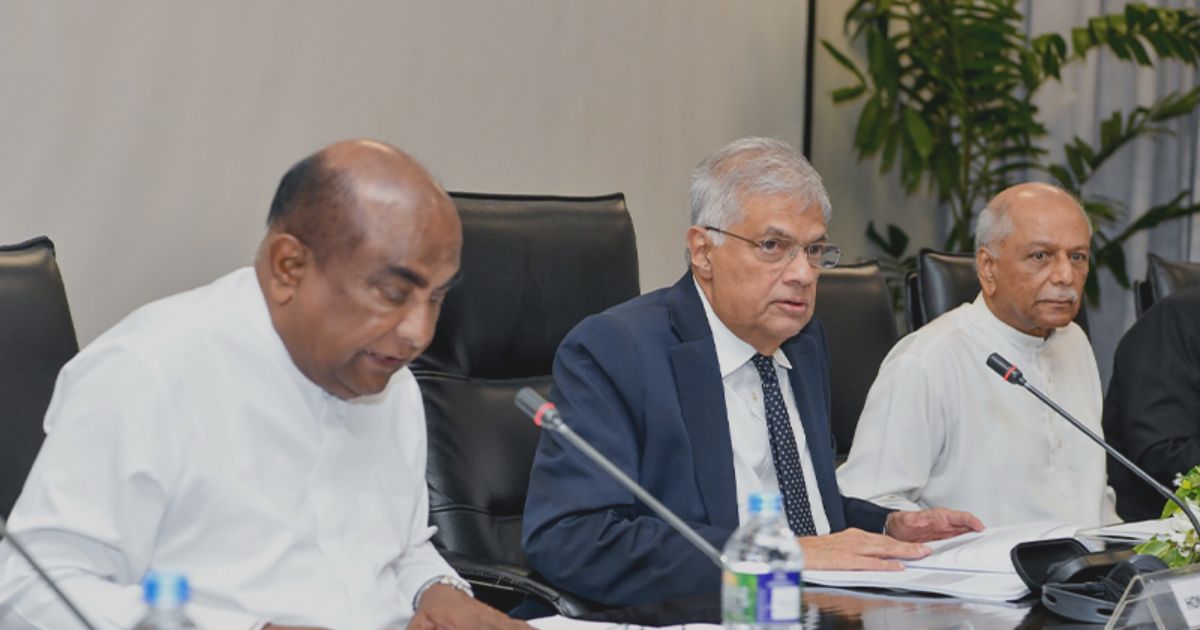President Ranil Wickremesinghe announced plans to introduce a new body, the Digital Promotion Agency as a means of developing government apps in-house. Typically, government-based software is handled by third parties, particularly when it comes to large-scale projects. As per the president, the agency is set to be responsible for developing apps that will collect and monitor data from various government bodies.
Interestingly, the announcement comes less than a year after the president stated that the ICTA is shutting down. At the 2023 budget reading, Wickremesinghe claimed that the agency’s work is almost complete and that it will be replaced by a new organization. The government hasn’t explicitly named the Digital Promotion Agency as its official successor, though the messaging suggests that it may be a prelude to what’s to come.
Back in 2003, the ICTA was established under the Information and Communication Technology Act, No. 27 of 2003. The institution was set up to implement the World Bank-funded e-Sri Lanka development project which ran from 2004 to 2011. The ICT Act was amended in 2008 which allowed the agency to extend its capacity to help the government formulate and enact ICT policy at the national level. One significant part of this includes overseeing the digitalization projects across numerous ministries. Now it appears the task will be transferred to an entirely new government agency, one that will handle the development process as well.
Sri Lanka’s e-government problem
As of now, it’s unclear what the specifics are around the Digital Promotion agency and what it means in the long run. In theory, the idea of bringing government tech development in-house could potentially translate to curbing massive financial and operational inefficiencies. Although, it could very well go the opposite direction, especially given Sri Lanka’s track record on e-government projects.
For instance, last year it was revealed that the Ministry of Health’s Medical Supplies Division (MSD) paid LKR 644 million for an ERP system that took seven years to build and implement. Additionally, the MSD reportedly pays LKR 5 million per month for maintenance despite the system’s issues. However, the developer of the system, EWIS later denied the reports and claimed that it was actually LKR 223 million.
Recently, another ministry was put in the spotlight for a similar incident. According to The Morning, the Criminal Investigation Department (CID) claims the Ceylon Petroleum Corporation (CPC) might have lost as much as 3.8 million liters of fuel owing to fraudulent activity in its ERP system. As per the CID, evidence suggests that the CPC’s SAP system was fed falsified data 582 times between 1 April and 15 August 2022. This means the corporation’s losses from the fraud alone could amount to millions.
But it’s just not management software, the government tends to fall behind even in its simplest digital implementations. Right now, there is a slew of government websites operating without even an SSL certificate.
Then there are the policies themselves. Part of the problem with developing a long-term national digital policy is the risk of shifting priorities based on the government in power. This means certain projects would be at the risk of an amended timeline while new initiatives could be added to the fold altogether. After all, it wasn’t too long ago that the Sri Lankan government was invested in going crypto whereas the current Ranil Wickremesinghe-led administration pushes AI instead.
The Digital Promotion Agency of it all
What all of this should tell you is that there are gaping holes in how Sri Lanka handles digital at a national level. It’s true that projects like the National Fuel Pass showcase how effective digital solutions can be for the average citizen. Additionally, a more effective means of collecting and managing public sector data offers a lot of promise on paper. But history has shown time and time again how inefficiencies topped with self-interests have often stunted promising digital initiatives in Sri Lanka.
An argument could be made whether taking on another role in the midst of an already problematic process bodes well for Sri Lanka’s digital future. This is particularly true in a landscape where the country is looking to establish more tech-focused bodies like the Data Protection Agency while the ICTA is en route to closing shop.
More importantly, questions remain on what all of this means for Sri Lanka’s ongoing digital projects like the Digital ID, Lanka Government Network, RAMIS, and a host of others. In any case, only time will tell if the government’s decision to delegate the full supply chain of e-government, especially the tech development part itself, will bear fruit.







GIPHY App Key not set. Please check settings